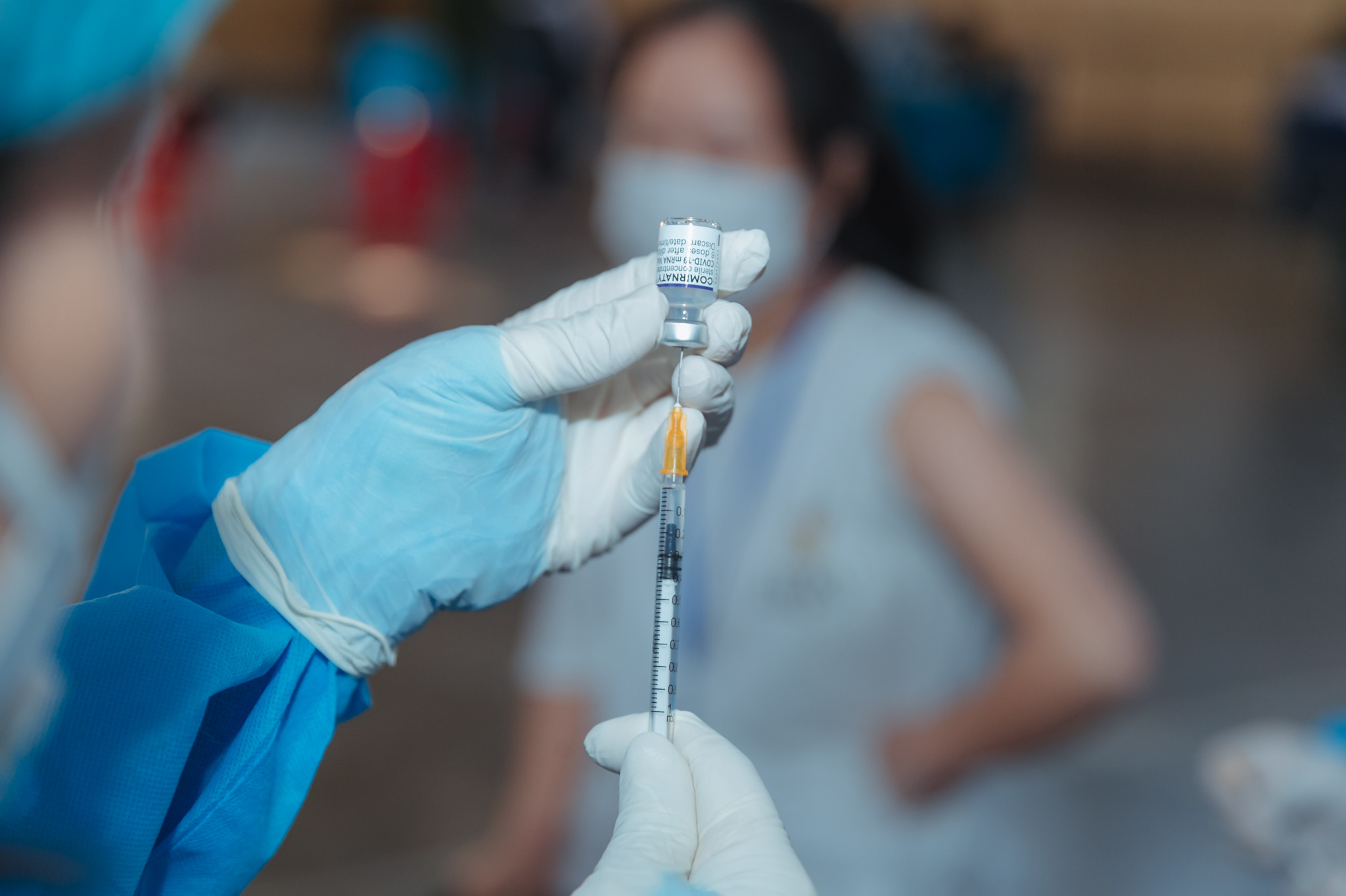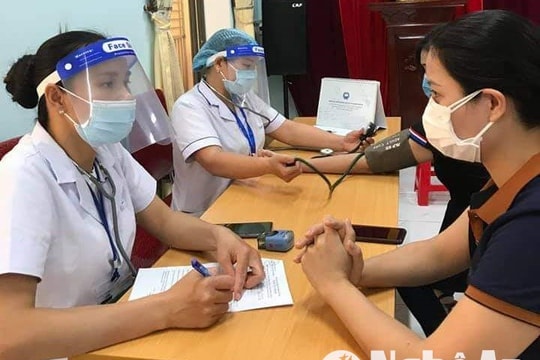More than 7 million doses of Covid-19 vaccine for children aged 5-11 will arrive in Vietnam this April
The earliest batch of nearly 1 million doses is expected to arrive in Vietnam on April 9. After completing inspection, the Ministry of Health will immediately distribute them to localities for vaccination.
Deputy Minister of Health Do Xuan Tuyen said on April 7 that more than 7 million dosesCovid-19 vaccineModerna's vaccine for children aged 6-11 will arrive in Vietnam in April, divided into 3 batches. The earliest batch of nearly 1 million doses is expected to arrive in Vietnam on April 9. The second batch of about 2 million doses will be delivered on April 13. The third batch of more than 4 million doses is expected to arrive before April 18. These batches of vaccines are all donated to Vietnam by the Australian Government.
Deputy Minister Tuyen informed that the Covid-19 epidemic situation in the country has changed a lot. Vietnam has discovered the Omicron variant and changed its strategy from epidemic prevention to safe, flexible adaptation and effective control of Covid-19. Sources of infection in the community always exist, the rate of Covid-19 infection and the number of infections among school children are increasing, leading to a continuous increase in the number of people with natural immunity in the community.
Therefore, the Ministry of Health balances the amount of donated and purchased vaccines to ensure the vaccination needs for children from 5 to under 12 years old. After the vaccines arrive in Vietnam and are tested, the Ministry of Health will immediately distribute them to localities to implement vaccination.
 |
| To effectively prevent and combat the Covid-19 epidemic, the vaccination progress needs to be accelerated further. Photo: Duc Anh |
According to the plan of the Expanded Immunization Program, in the upcoming vaccination campaign for children aged 5-11, localities will organize vaccinations in a rolling manner by school and area, based on the epidemic situation and the number of vaccines provided. Children will be vaccinated free of charge, at fixed facilities, mobile vaccination points and schools. Parents and guardians will sign a consent form for vaccination for their children. Children aged 11 and older will be vaccinated first, then gradually lower the age.
Associate Professor, Dr. Duong Thi Hong - Deputy Director of the National Institute of Hygiene and Epidemiology said that Vietnam uses two types of Covid-19 vaccines in the vaccination campaign for children from 5 to under 12 years old, including Pfizer's vaccine.rand Moderna. Specifically, the Ministry of Health will allow the use of Moderna's Covid-19 vaccine for children aged 6-11. The vaccine produced by Pfizer will be injected into children aged 5-11.
When receiving the Moderna vaccine, children may experience some reactions, of which very common reactions include symptoms of swollen lymph nodes on the same side as the injection site, some cases of swollen lymph nodes in the neck, above the collarbone; headache, nausea/vomiting, muscle pain, joint pain, pain at the injection site, fatigue, chills, fever, swelling at the injection site, redness at the injection site.
Common reactions include diarrhea, rash, urticaria at the injection site, rash at the injection site, and delayed reactions at the injection site. Rare reactions include dizziness and itching at the injection site. Rare reactions include decreased sensation and facial swelling in people with a history of dermal filler injections.
Very rare reactions include myocarditis, pericarditis. Anaphylactic reactions, hypersensitivity, abdominal pain recorded with unknown frequency. Experts also warn that some abnormal manifestations such as agitation, difficulty breathing, chest pain, fatigue, sweating, cold hands and feet can be very early indicators of myocarditis in children.
With the Pfizer vaccine, children may experience very common reactions after vaccination (more frequent with the second dose) such as headache, diarrhea, joint pain, muscle pain, pain at the injection site, exhaustion, chills, fever.
Other common reactions include nausea and redness at the injection site. Less common reactions include swollen lymph nodes, hypersensitivity reactions (rash, itching, hives, angioedema), decreased appetite, insomnia, lethargy, increased sweating, night sweats, pain in the limbs, weakness, malaise, and itching at the injection site. In particular, reactions causing myocarditis and pericarditis are very rare (less than 1/10,000).
Associate Professor Hong recommends that children from 5 to under 12 years old should absolutely not be given mixed mRNA Covid-19 vaccines, but only one type of vaccine should be used for both doses (meaning children who have received the first Pfizer dose will only receive the second Pfizer dose).



